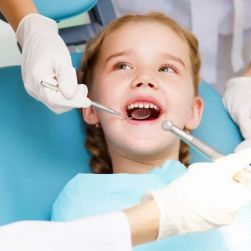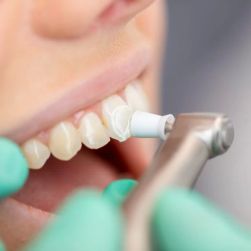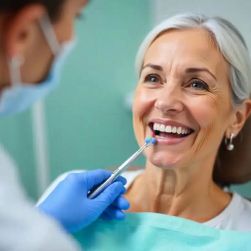As we age, maintaining oral health becomes an increasingly important component of overall wellness. The elderly population, particularly in the United States, is susceptible to various dental issues due to natural physiological changes and sometimes, inadequate dental care. However, understanding the specific needs of oral health in the elderly and implementing preventive measures can significantly enhance their quality of life. In this article, we delve into the critical aspects of oral health for seniors and explore effective strategies to ensure that they maintain healthy teeth and gums well into their advanced years.
Understanding the Common Oral Health Challenges in the Elderly
The aging process naturally brings about several changes in oral health, including a higher risk for dental caries, periodontal disease, and even tooth loss. According to the National Institute of Dental and Craniofacial Research, around 27% of seniors aged 65 to 74 experience untreated cavities. Gingival recession and the eventual exposure of tooth roots make older adults more prone to root caries, a condition less common in younger individuals. Additionally, the decrease in saliva production often seen in seniors, known as xerostomia, can lead to increased plaque accumulation and subsequent dental complications. Understanding these challenges is crucial for effectively managing and preventing oral health issues among elderly populations.
The Impact of Systemic Health on Oral Hygiene
In seniors, oral health is closely related to their overall systemic health. Chronic conditions such as diabetes and cardiovascular disease, which are prevalent among older adults, can complicate dental health. For instance, diabetes can lead to alterations in blood sugar levels that enhance the risk of gum disease. Moreover, medications commonly prescribed to elderly individuals may have side effects impacting oral conditions, including dry mouth, which heightens the risk of tooth decay. Therefore, keeping systemic health in check is essential for promoting optimal oral hygiene. Engagement with healthcare providers for routine check-ups can aid in identifying and managing these interconnected health concerns.
Effective Oral Hygiene Practices for Seniors
Implementing comprehensive oral hygiene practices tailored for the elderly can greatly contribute to preserving their dental health. For starters, using a soft-bristled toothbrush and fluoride toothpaste can help combat plaque without damaging sensitive gums. For seniors facing dexterity challenges, electric toothbrushes might offer a more convenient alternative. Additionally, incorporating daily flossing or the use of water flossers can assist in removing inter-dental debris, further reducing the likelihood of gum disease. Regular professional cleanings and examinations by a dental professional are also essential for preventing and catching issues early on.
The Role of Nutrition in Oral Health
Nutrition plays a pivotal role in maintaining oral health, especially in the elderly population. Ensuring a balanced diet rich in essential vitamins and minerals supports both oral and general health. Calcium and Vitamin D are particularly crucial for elderly individuals as they help in maintaining bone density, which includes the jawbone supporting the teeth. Foods high in antioxidants and omega-3 fatty acids also play a beneficial role in reducing inflammation and promoting healthy gums. Furthermore, limiting the intake of sugary foods and beverages can significantly decrease the risk of caries in seniors.
Addressing Financial and Accessibility Barriers
Access to dental care is often a significant barrier for many seniors, due to financial constraints and physical limitations. Medicare does not provide extensive dental coverage, leading many older adults to forego necessary treatments due to cost. To address this issue, it's crucial to explore alternative resources such as community health clinics and senior dental care programs that offer services at reduced rates. Furthermore, for individuals with mobility challenges, seeking dental practices equipped to accommodate these needs ensures seniors receive essential care without added stress. Websites like Dentistry Toothtruth may provide valuable information on sourcing affordable and accessible dental services.
In conclusion, maintaining oral health in the elderly is a multifaceted task that requires attention to specific age-related challenges and a proactive approach to preventive care. By understanding the oral health challenges faced by seniors, recognizing the impact of systemic conditions, implementing effective dental practices, ensuring proper nutrition, and addressing barriers to care, it's possible to significantly enhance the quality of life for elderly individuals. Prioritizing regular dental visits and remaining informed about abundant resources, such as those provided by Dentistry Toothtruth, can empower seniors and their caregivers to make informed decisions for optimal oral health. As we strive to improve senior dental care, synchronizing these efforts will undoubtedly promote healthier, happier lives for the elderly.






